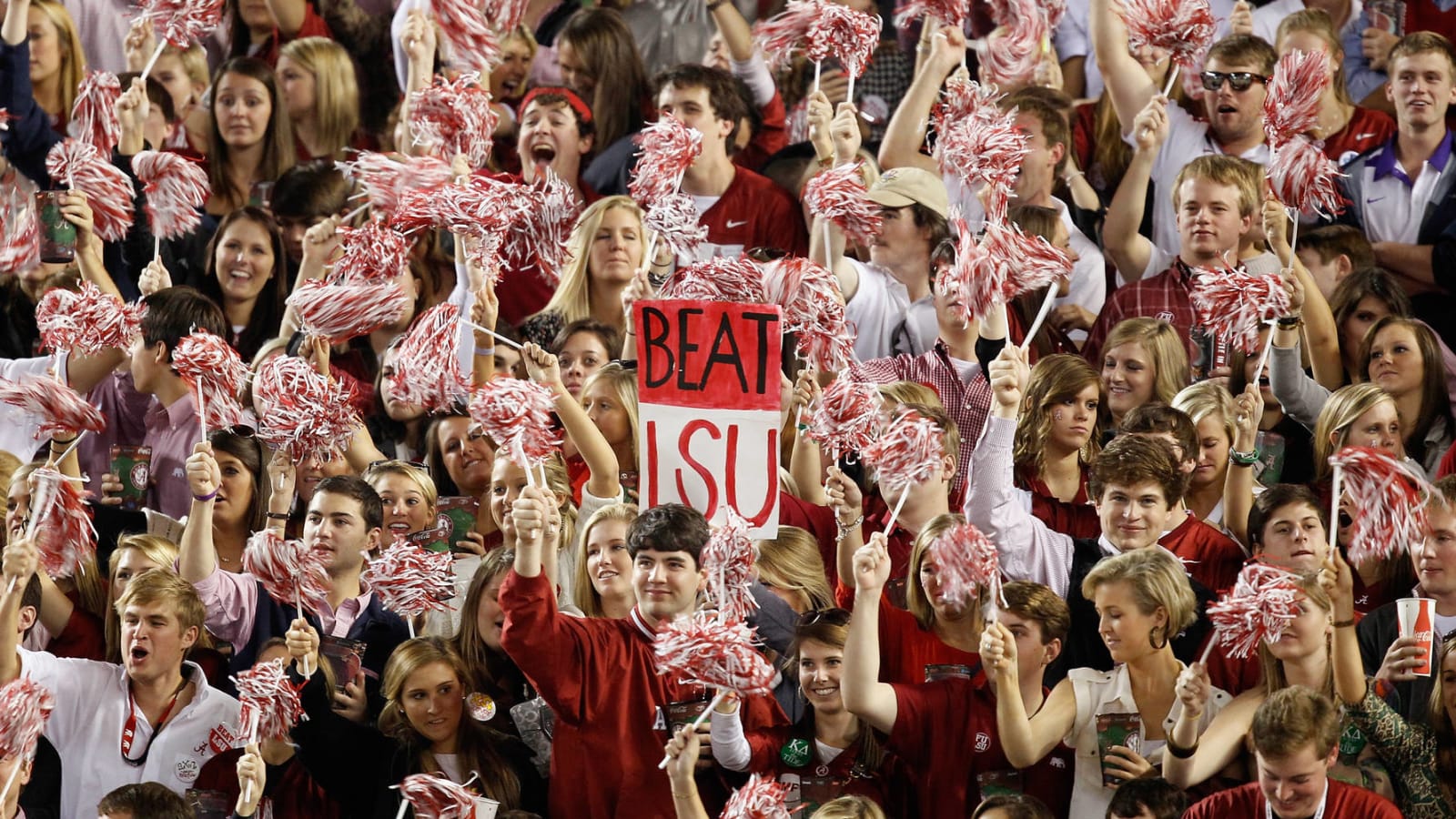
Why alcohol sales at SEC games may be sign college football is growing up
In 2011, West Virginia athletic director Oliver Luck proposed an idea that seemingly made little sense: With his school confronting a decades-long binge-drinking issue on football Saturdays, Luck suggested the school sell beer at home games. This was a radical and counter-intuitive notion for a university that had long been associated with a hardcore party culture where no couch is safe -- particularly since virtually no other major universities allowed alcohol to be sold in their stadiums at that point.
The problem, Luck observed, was that fans would drink far too much at pregame tailgates, or that they’d head to the exits at halftime, go knock out a few more keg-stands, and then head back inside. (These back-and-forth privileges are known as a “pass-out,” which is a phrase that belongs in the double entendre Hall of Fame.)
But by eliminating those “pass-out” privileges, Luck’s policy worked: Alcohol-related game-day incidents involving the police in and around WVU’s stadium in Morgantown dropped precipitously. And so, perhaps encouraged by those schools’ successful experiments, more major universities adopted the policy of selling alcohol at games. And the same thing happened.
Last Friday, this idea breached perhaps the final frontier of skepticism: The Southeastern Conference, which for decades had banned alcohol sales at its stadiums, finally relented. The decision on whether or how to sell alcohol will be left to individual schools, though it will be guided by certain rules (only beer and wine, for instance, and no vendors in the stands).
Some schools have limited alcohol sales to certain “elite” areas of the stadium populated by high-rollers willing to pay more for their seats; others might not allow it all yet. Either way, the larger truth is becoming clear. Prohibition likely wasn’t making anything better, and now even the SEC -- ”a pretty traditional league,” as University of Florida athletic director Scott Stricklin told Sports Illustrated -- will be forced to confront that reality.
As someone who grew up attending Penn State football games, I can assure you what happened in the wild country of Morgantown was common practice elsewhere. A noon kickoff in Happy Valley meant we’d start partying as early in the morning as we could. A night game meant we’d spend all day loading up. And eventually, idiots that we were, we wound up pioneering the notion of loading up soft bladders full of Southern Comfort and tucking them into areas that even the boldest usher wasn’t going to explore.
“When you don’t allow (alcohol), it creates more issues,” John Dugas, an associate athletic director at Louisiana in Lafayette, told Sports Illustrated. Dugas’ university began serving booze in 2009, two years before even West Virginia did. “You’re going to binge drink or sneak it in. People sneaking it in was really starting to be a real problem for our security around here.”
The skeptic might argue, of course, that the SEC is embracing this policy out of sheer necessity. College football attendance has been slowly dwindling in recent years, even in the cultural hot spots of the South, in large part because a lot of people would rather hang out at home, where they can watch the game in high-definition, more readily consume watery light beer, and then avoid the long bathroom lines to deposit the residue of that beer.
By creating premium seating areas where alcohol is allowed, you obviously generate more revenue. But it also feels like yet another way of establishing that college football is not somehow more holy or sacred than any other sport -- and that by treating it as such, we’ve probably only been making things worse.
There is still some dispute among experts as to whether this policy can work long term. But in the short term, it’s likely a smart business decision, and there’s nothing wrong with that, presuming we’re ready to acknowledge that college football is a business.
In tandem with the NCAA’s willingness to at least study the notion that the amateur ideal is utterly outdated, maybe it’s a sign that college football is finally willing to get a little bit more real. Perhaps it’s a sign that the powers-that-be are slowly coming to the realization that they need confront the sport’s problems in a realistic way, before those problems wind up obliterating the sport altogether.
More must-reads:
- Alabama, Auburn will not sell alcohol at games despite new SEC rule
- Protector of his realm, Alabama's Nick Saban reaches a crossroads
- The '100 catches in an NFL season' quiz
Breaking News
Customize Your Newsletter
 +
+
Get the latest news and rumors, customized to your favorite sports and teams. Emailed daily. Always free!

